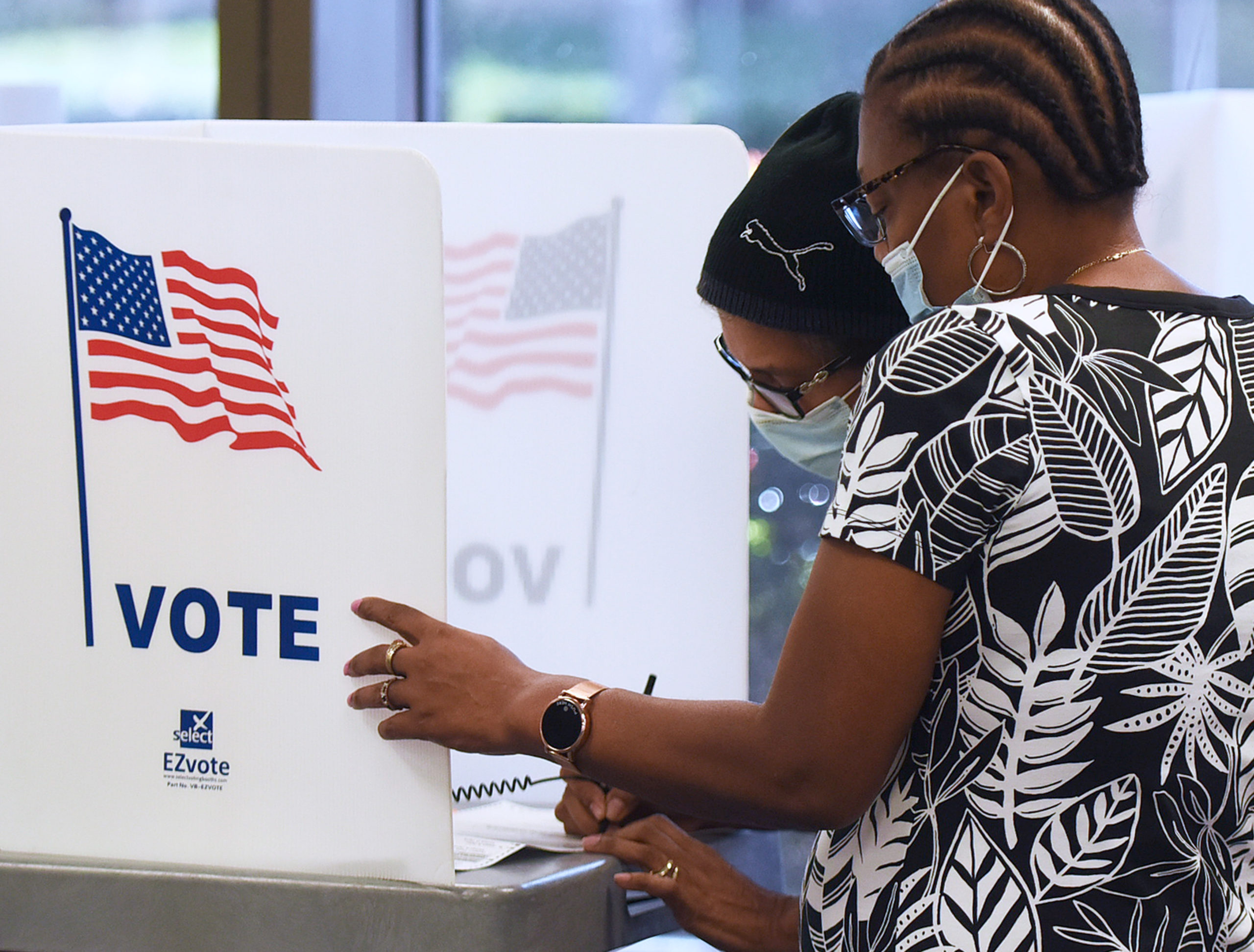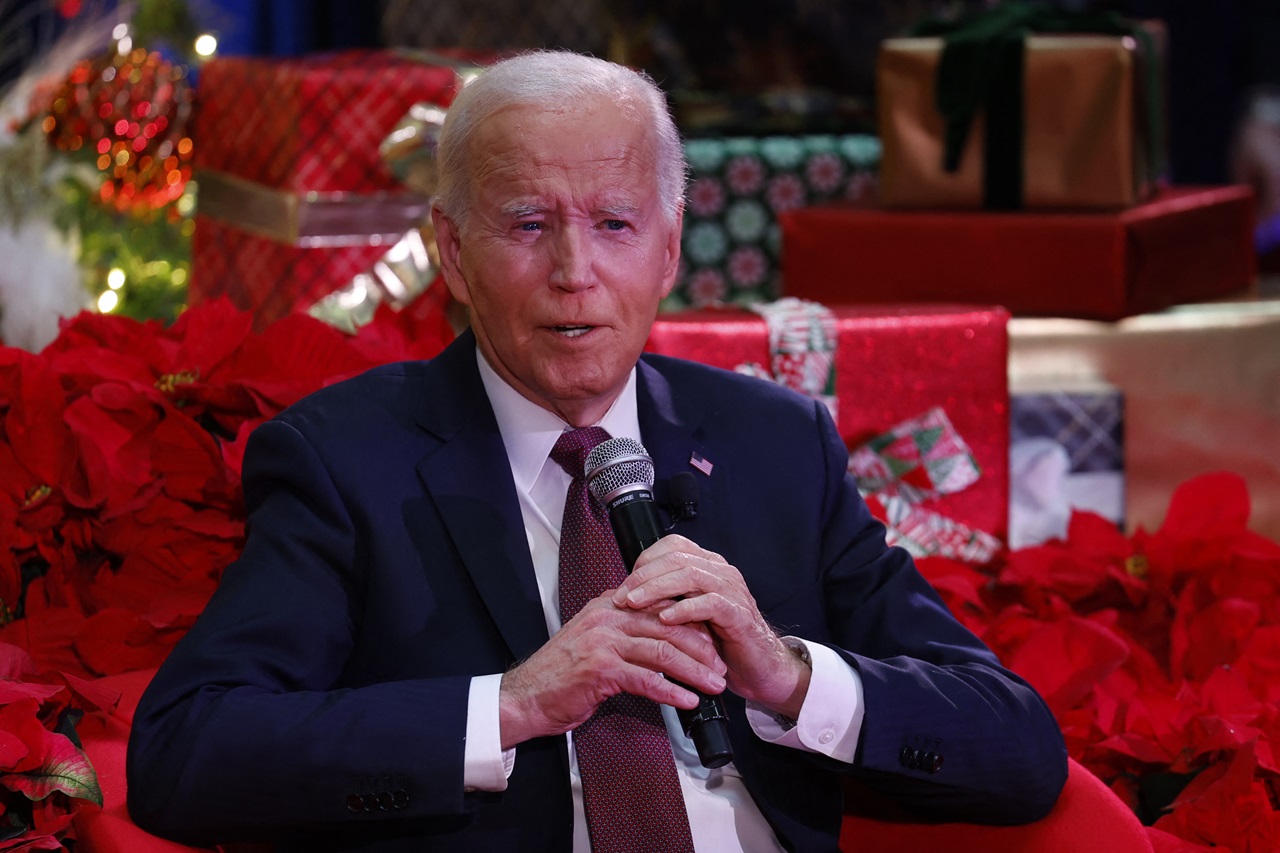
Florida set to face its third lawsuit over new voter suppression law
Another lawsuit is being brought forth by another diverse coalition of organizations, including UnidosUS, Hispanic Federation, and Poder Latinx, among others.
On Tuesday, May 18, a third lawsuit was filed challenging Florida’s voter suppression bill, SB 90.
SB 90 was signed into law by Governor DeSantis on Thursday, May 6. The law prohibits anyone except poll workers from distributing food and water to voters waiting in line, shortens the period in which absentee ballot requests will be honored, and reduces the time in which ballot drop boxes can be used.
On May 6, the League of Women Voters in Florida, Black Lives Matter Fund and the Florida Alliance for Retired Americans sued the state of Florida over the legislation, insisting that the provisions established an “undue burden” on the right to vote.
On the same day, a second lawsuit was filed by the NAACP Legal Defense Fund on behalf of the Florida NAACP, Disability Rights Florida, and Common Cause, arguing that the bill’s provisions violate Title II of the Americans with Disabilities Act.
On Tuesday, Demos, the Advancement Project National Office, and LatinoJustice PRLDEF joined the fight with their own lawsuit, arguing that several of the bill’s provisions limiting access to the ballot box violate the First, Fourteenth and Fifteenth Amendments, as well as Section 2 of the Voting Rights Act (VRA).
The lawsuit, announced during a press conference, was filed on behalf of a diverse coalition of civil rights groups — Florida Rising Together, Faith in Florida, UnidosUS, Equal Ground Education Fund, Hispanic Federation and Poder Latinx.
We have joined @flrising @faithflorida, @weareunidosus, the Equal Ground Education Fund and @PoderLatinx in a lawsuit against the state of #Florida over it’s horrible voter suppression bill.
— Hispanic Federation (@HispanicFed) May 18, 2021
⁰Find out more: https://t.co/cZLtcrcDI8
The legal complaint asserts that the new law violates the VRA and unlawfully curtails the right to voter assistance at polling locations. It also describes how the law will disproportionately impact Black and Latinx voters, and damage the work of civic engagement groups.
“Every voter, regardless of race, background or zip code, should be able to make themselves heard at the ballot box,” said Judith Browne Dianis, Executive Director of the Advancement Project National Office.
Dianis also made it clear that SB 90 is unnecessarily aggressive, and the barriers it imposes on voters of color “locks them out of democracy.”
“In a country where we celebrate democracy, voting should be made accessible for everyone,” said Laudi Campo, Deputy Director of Hispanic Federation Florida.
“Voting rights have never been given to people of color; we had to fight for them. We are not asking for special treatment; we ask to keep in place the measures that have proven to increase voter participation in our community,” Campo said.
As the organizations detailed in the complaint, the vote-by-mail option was widely used by Florida residents, and in the 2020 election cycle, voters of color in particular relied on it.
Roughly 40% of all votes cast by Black Florida residents were cast through the mail, double the amount in 2016. Latinx residents also increased their use of mail-in ballots by more than 50% since 2016.
It appears that the Florida legislature has continued making mail-in voting more accessible to voters, until voters of color started taking advantage of it more.
Black and Latinx voters also cast ballots in drop boxes in 2020, which was beneficial in reducing wait time in lines for in person voting. While SB 90 doesn’t ban the use of drop boxes, it makes them impractical for many voters who will not be able to deliver their ballots during business hours.
RELATED CONTENT
Due to the recent rash of state voter suppression bills The Voting Rights Working Group- which includes @latinojustice - has vowed to remain vigilant & keep promoting/protecting the right to vote of racial minorities & people of color.
— LatinoJustice PRLDEF (@latinojustice) May 18, 2021
Statement: https://t.co/ZMiee40W8w pic.twitter.com/NckXV9qeg9
As a result of this provision, polling places will be more crowded, lines will be longer and people will have fewer options to exercise their right to vote.
The law puts an end to the convenience of 24/7 ballot drop boxes and requires that the boxes be monitored in-person by an election official. Ballots can now only be accepted during early voting hours, and those who want to vote by mail must request a ballot each year instead of every two.
Additionally, only election workers are permitted to provide assistance, such as handing out food or beverages, within 150 feet of polls or drop boxes.
“By having a 150-feet requirement for individuals providing assistance, you’re essentially denying individuals the opportunity to have an assistance of their choice because the people have to stand far away outside of the polls,” said Jorge Vasquez, program director at the Advancement Project.
“It’s clear that Gov. DeSantis doesn’t like Black or brown voters. It’s clear that as Florida continues to become diverse, the voters of color are once again under attack,” Vasquez said.
The law also requires that those who request mail-in ballots or switch their party affiliation provide identification, such as a Florida driver’s license number, state ID number, or the last four digits of their social security number.
Thanks to @GovRonDeSantis and the FL state legislature, this voter suppression bill will usher in a new era of Jim Crow statewide. SB 90 will severely restrict vote-by-mail ballot drop-offs and voter registration efforts in a state where election security was not even an issue.
— Black Voters Matter (@BlackVotersMtr) May 6, 2021
Voting rights advocates argue that some voters may not have access to those numbers when they make a request. They may not have a license or be willing to share their social security number.
Kira Romero-Craft, an attorney with LatinoJustice PRLDEF, explained that there’s a fair number of voters who designate someone to pick up their vote-by-mail ballot for them within the nine-day period before Election Day.
Today, we filed a lawsuit w/@Demos_Org & @latinojustice on behalf of @FLRising, @FaithFlorida, @EqualGroundFL, @WeAreUnidosUS, @HispanicFed & @PoderLatinx to block #votersuppression law #SB90 in Florida. Learn about the lawsuit here: https://t.co/yf3EXSe06I pic.twitter.com/093VBSJekF
— Advancement Project National Office (@adv_project) May 18, 2021
But under SB 90, this designated person would have to possess the voter’s last four digits of their social security number, their Florida ID number or driver’s license number, also making privacy an issue.
"It creates an unnecessary obstacle, and it can cause them to drop their vote-by-mail request altogether," said Romero-Craft.
“Together, LatinoJustice, along with our partners, will combat the unlawful provisions of SB 90 aimed to turn back the clock on democracy and continue to fight to ensure equal participation, democratic principles, and freedom for all,” Romero-Craft said.











LEAVE A COMMENT:
Join the discussion! Leave a comment.